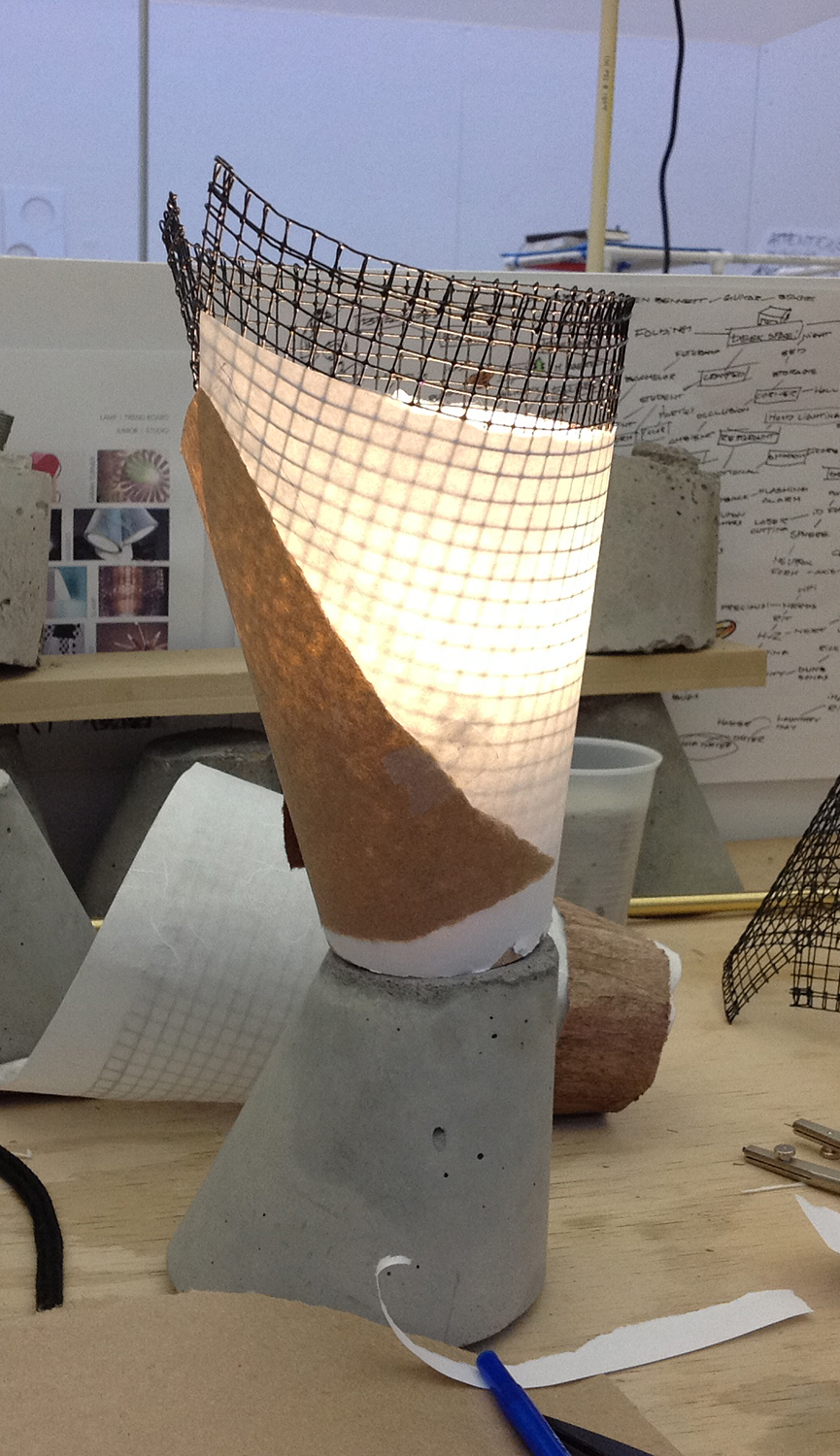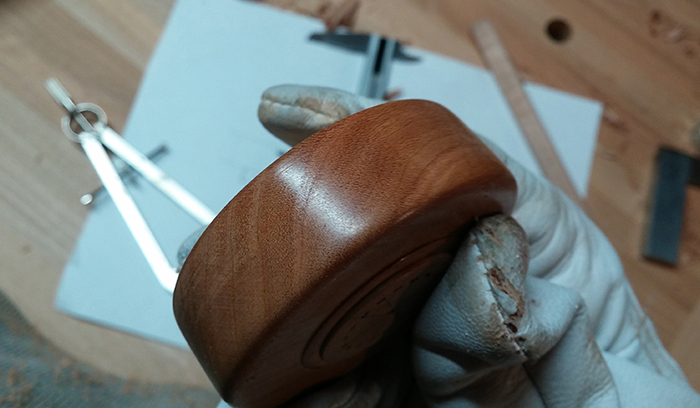Lümina
Design brief
This project focused on designing a lamp for that suited a demographic that consisted primarily of college students. In order to be successful, the design needed to be feasibly executable in a short production run, have a competitive price, and have a profit margin of at least 41%. These lamps were displayed and sold publicly on RIT's campus.
Market Research
To get an overall understanding of consumer and designer trends, a trend board was created to help summarize information gathered from market research.
Sketching
These two-dimensional sketches were used to explore various design aspects such as form, function, and materials.
Sketch Models
After deciding on a final form, three-dimensional sketch models were created to assess the design's size, feasibility, materials, and light diffusion.
Refinement
After further development, I settled on a final design that features a concrete base that is juxtaposed with a shade made from papyrus and rice paper. The shade is supported by a wire mesh that helps add visual complexity when the lamp is lit.
Fabrication
During production, I used a variety of repurposed materials in order to reduce costs, allowing for a lower selling cost, increasing the probability of selling to a money-conscious demographic. Additionally, this was to assist with marketing the product, as many college students are concerned with environmental conservation and might be more likely to purchase something made using more ecologically-friendly methods.
Margin estimates
Since many college students do not have much discretionary income, the final retail price needed to be kept to a kept fairly low. Keeping prices too low, however could hurt might also hurt marketability, as many informal transactions are done with cash. To make transactions easier for the buyer, the final price must be at $20 per unit, as ATMs usually only dispense $20 bills..
Final design
The lamp features a reversible shade that can be flipped based on users' needs. The overall purpose of the lamp is to provide strong diffused light. In order to achieve this, the shade is vertically-oriented, directing light upwards, causing light to refract off of the environment.





















